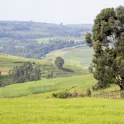
Sustainability
29 Sep 2017
Tree is life vs tree is cash
A paper in Frontiers in Communication looks at how changes in the way people view themselves and their place in their environment can affect conservation.

Sustainability
29 Sep 2017
A paper in Frontiers in Communication looks at how changes in the way people view themselves and their place in their environment can affect conservation.

Environment
09 Aug 2017
Frontiers in Marine Science is proud to launch the second edition of our annual Research Topic: Horizon Scan 2018: Emerging Issues in Marine Science.
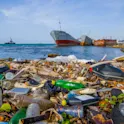
Environment
08 Aug 2017
Recent study, published in Frontiers in Marine Science, highlights emerging issues faced by the marine environment.
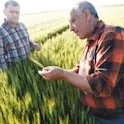
Environment
26 Jul 2017
Scientists demonstrate that the indigenous knowledge of smallholder farming communities may yield genomic targets useful for wheat breeding.

Climate action
17 Jul 2017
First in-depth study, published in Frontiers in Marine Science, looking at public engagement with marine climate change issues across 10 European countries.
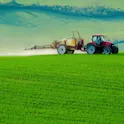
Sustainability
11 Jul 2017
Food, health, and environmental sustainability: interconnected issues to be tackled. Experts discuss at the EAT Stockholm Food Forum 2017.
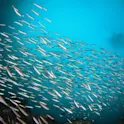
Sustainability
08 Jun 2017
The World’s Oceans are in Crisis but the First UN Meeting on Oceans Brings Hope, article published by Nina Hall for Frontiers in Marine Science

Sustainability
01 Jun 2017
How is Open Science helping to shape the future of our planet? What role will ethics and leadership play in future sustainability? How critically entwined is the health of humans to that of other animals and the overall environment? What do we need to teach our children to prepare them for the future? For almost a decade Frontiers has been at the forefront of important and emerging research trends as well as a leader in open-access publishing and the Open Science movement. As the depth and breadth of the science that we publish expands we are recognizing and identifying cutting-edge outstanding research through our new Spotlight Award. Our strong advocacy for Open Science also continues as we believe that it will play a key role in securing the future sustainability of the earth. For the third year running, this June, our annual Frontiers Summit hosted Frontiers Chief Editors and staff and global political, business and science leaders to discuss leading research trends and to debate how we can further drive Open Science for the benefit of our planet and our children and grandchildren.
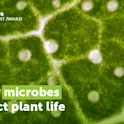
Sustainability
23 May 2017
The Research Topic, published in Frontiers in Plant Science & Frontiers in Microbiology, aims to cover all aspects of biotrophic plant-microbe interactions

Sustainability
15 May 2017
Study, published in Frontiers in Marine Science, finds Amazon River emits as much carbon as the forest stores with major implications for climate policy.
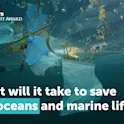
Environment
08 May 2017
New research, published in Frontiers in Marine Science, bridges the gap between policy makers and scientists to ensure sustainable use of our oceans.

Space sciences and astronomy
21 Apr 2017
Frontiers in Astronomy and Space Sciences launched a new Research Topic which aims to investigates the origins and the main features of trans-Neptunian objects, small celestial objects that orbit the Sun at a greater distance than Neptune.
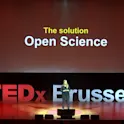
Environment
19 Apr 2017
Open Access publisher Frontiers’ CEO, Kamila Markram, makes a case for why open science is the key to innovation, economic growth and solutions to a sustainable future.

Environment
24 Mar 2017
Oceans are the engines of our planet and open-science is improving communication between scientists and policy makers for their sustainable future use.

Environment
22 Mar 2017
New research published in Frontiers in Environmental Science discusses, for the first time, how to improve ecosystem conditions for societal use.
Get the latest research updates, subscribe to our newsletter